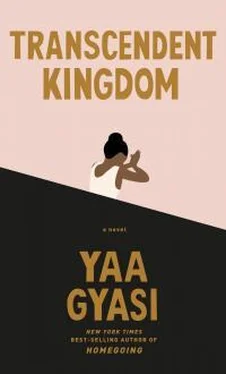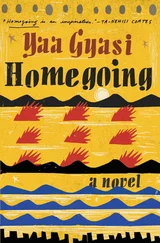The “shocks” that my mother described have come a long way since they were first used in the 1940s and ’50s. We all remember that scene from One Flew Over the Cuckoo’s Nest, when electroconvulsive therapy was used not as a treatment for mental illness, but as a kind of mind control. Back then, the therapy was performed on anyone from the schizophrenics and depressives who needed mental health care to the homosexuals and “hysterical” women who neither needed nor asked for treatment, who simply lived outside the bounds of what society deemed “normal.” It’s hard to shake that image of people being forced to correct something that was never wrong. It’s hard to forget the primitive beginnings of this therapy, to stand by it. For many, like my mother, the “shock” of this treatment, the way it induces a seizure in order to treat something that is impossible to see, and often difficult to accept, feels like a bridge too far. But the truth is that electroconvulsive therapy can work, does work. It is often presented as a last resort, and it is just as often performed because the patient herself requests it in one final attempt to crawl out of the deep, dark tunnel.
The work that Katherine and those of us who are interested in finding bioengineering and neuroscientific interventions to treat psychiatric illness do is in many ways about moving beyond the last resort, the final attempt. When she returned to her practice, Katherine would become a psychiatrist who only accepted patients who had no other options left, patients for whom everything, even death, had failed. In addition to optogenetics, Katherine’s work at Stanford involved improving vagus-nerve stimulation, a treatment for treatment-resistant depression and epilepsy whereby a tiny device is implanted beneath the skin near a patient’s collarbone, delivering electrical impulses to the vagus nerve. It is a charger for the depleted battery of a depressed patient’s body. The frustrating thing about the technology is that, like with DBS for Parkinson’s disease, no one knows exactly why it works, only that it works imperfectly, using electricity that cannot differentiate one cell from another. If we could better understand these treatments, if we could come up with interventions that affected only those specific neurons that are involved in each particular psychiatric illness, then perhaps we could provide something better.
—
My mother crawled out of her deep, dark tunnel, but perhaps this phrasing is too imprecise, the image of crawling too forceful to encapsulate the relentless but quiet work of fighting depression. Perhaps it is more correct to say that her darkness lifted, the tunnel shallowed, so that it felt as though her problems were on the surface of the Earth again, not down in its molten core.
My aunt took me to church one last time. The pastor didn’t like me. He was resentful of my many refusals to get up on the stage, receive my healing. That day he preached about how stubbornness is little more than pride in disguise. He looked right at me when he said that the pride of the West was in its inability to truly believe.
“Yesterday, I heard about a miracle, a miracle that reminded me of the miracles we read about in this holy book. Our sister in America could not rise from her bed, and she has now risen. Glory to God,” he said, and the church said, “Amen.”
“Our sister in America needed the God of miracles and the God of miracles showed up, amen?”
“Amen!”
“Those in the West might look at her and say that it is simply a coincidence that she rose from her bed, but we who believe know the truth, amen?”
“Amen!”
“When God says rise, we rise.” He looked around at the congregation, many of whom were clapping and nodding and lifting their hands with praise, but our reaction did not satisfy him.
“I said when God says rise, WE RISE!” He stomped his foot and the congregation took the hint. All around me believers rose to their feet, stomping and jumping and shouting.
I sat in my seat and stared at the pastor, who was watching me in accusation. I couldn’t, wouldn’t move. Had my mother really risen? Like Lazarus, like Jesus? I dared not believe.
The next day, Aunt Joyce and I took a tro-tro to Kotoka. Several men came up to ask if they might take my bags in for me. Aunt Joyce chided them all, “Leave us be. Can’t you see we don’t want your interruptions?”
When they left, she scooped me up into her arms and lifted me up and down, as if weighing me. She put me down and smiled, satisfied. Her smile was radiant, assured, proud. She was so very different from my mother, but in that moment, her arms around me, holding me as my own mother so rarely did, smiling brightly as my mother rarely smiled, I knew that the woman I had spent the summer with reflected the woman my mother could have been. My mother deserved to be this happy, this at ease in her body and in the world.
“You are a very wonderful child,” Aunt Joyce said. “You keep praying for your mother and making all of us proud.”
Only weeks before, I hadn’t even known of my aunt’s existence, and here she was, proud of me.
I boarded the plane and slept most of my first flight away, before transferring half-asleep in New York, then in Atlanta. My mother picked me up in Huntsville. She offered me a smile, and I took it hungrily. I wanted whatever it was she was ready to give.
45
When Mrs. Palmer, the woman my mother had spent years caring for, died after a long illness, I was in the fifth grade. She was ninety-five years old, and I can still remember the sight of her in her open casket. The hundreds of deep wrinkles on her face, her hands, made it look as though countless rivers had once run, crisscrossing and zigzagging, from her forehead to her toes. But the waters had dried up some time before, leaving only these empty basins and beds, rivulets drained of their rivers. I watched my mother pay her respects to Mrs. Palmer’s family, a group of people who were a far cry from the acrimonious Thomas family. They hugged my mother close as though she were one of them, and I understood for the first time that, to them, she was.
Who was she then, I wondered, as Mrs. Palmer’s children and grandchildren folded my mother into their arms. My mother—who had never hugged us, even when we were little children presenting her with our scrapes and bruises, our wails—accepted the touch of these strangers, who, of course, weren’t strange to her. She spent more of her days with Mrs. Palmer than she had ever spent with us. And so I recognized, for perhaps the first time, that my mother wasn’t mine.
—
Most days I woke up, folded the bed back into the couch, and peeked in on my mother before rushing off to the lab. I had stopped trying to get her up, to make her the meals she might like, make a fuss. But then one day I poked my head into the room and there she was, pulling her pants on.
“Ma?”
“You said you would show me your lab,” she said plainly, as though we were living in a world of logic, where time moved in orderly, straightforward ways, instead of here, in the zigzagged upside-down world. I had asked my mom to come to the lab with me a week and a half before only to be greeted with a “maybe,” followed by eleven days of utter silence; why now?
I decided to live in her world.
Though the day was overcast, my mother kept squinting and shielding her eyes as we drove to campus. I made a mental note to open the blinds in the bedroom more often even if she objected, adding “not enough vitamin D” to my growing list of worries. The lab was empty, and I felt guilty by how relieved I was to not have to explain my mother, her slightly disheveled appearance, her slow-moving shuffle, to my colleagues. Aside from Katherine and Han, no one even knew that she was staying with me, let alone that she had hardly moved from my bed in weeks. I knew that my reluctancy to tell them went deeper than my natural inclination toward reticence, deeper than the typical embarrassment of introducing family members to friends. It was that I worked in a lab full of people who would see my mother, see her illness, and understand things about her that the general public never could. I didn’t want them to look at her and see a problem to be solved. I wanted them to see her at her best, but that meant that I was doing what everyone else did, trying to dress up depression, trying to hide it. For what? For whom?
Читать дальше












